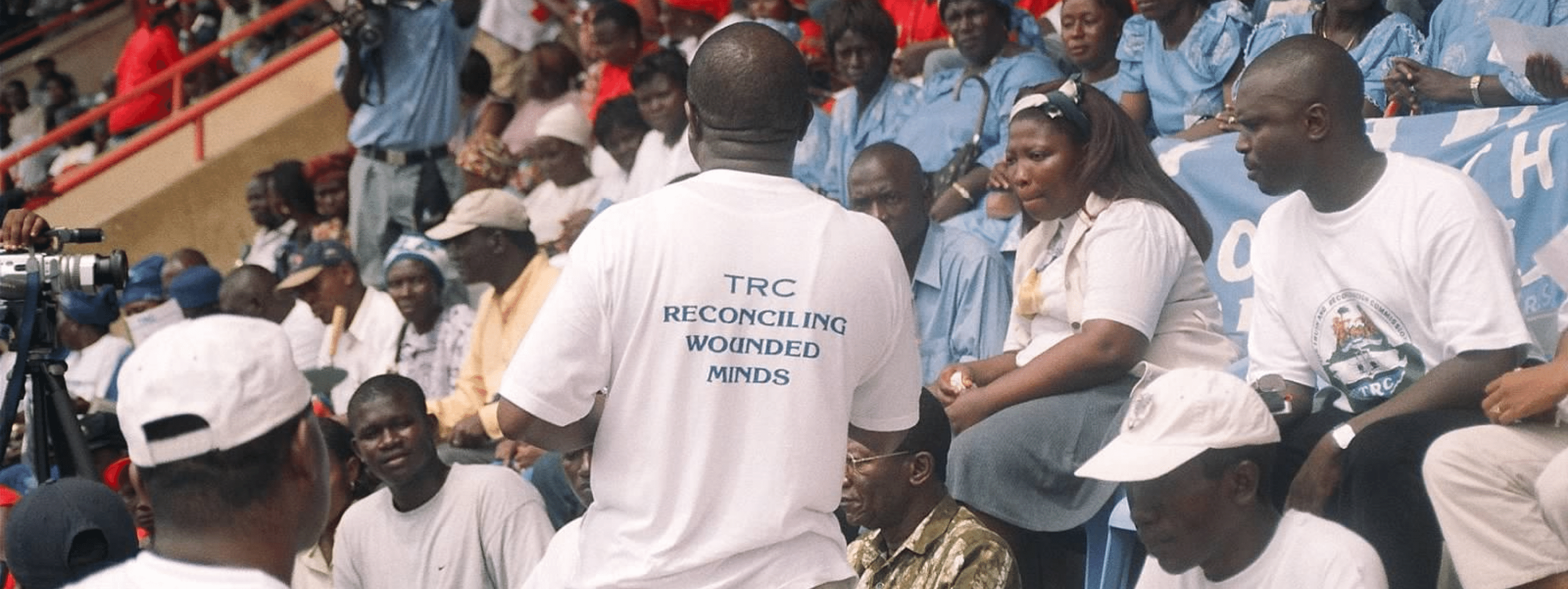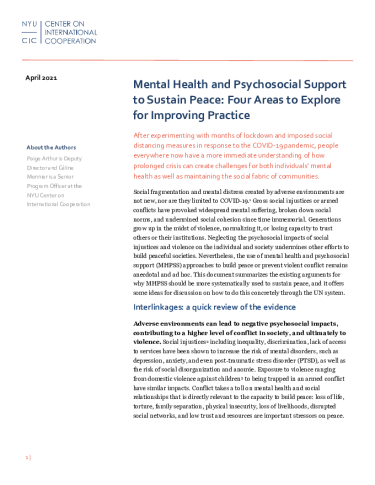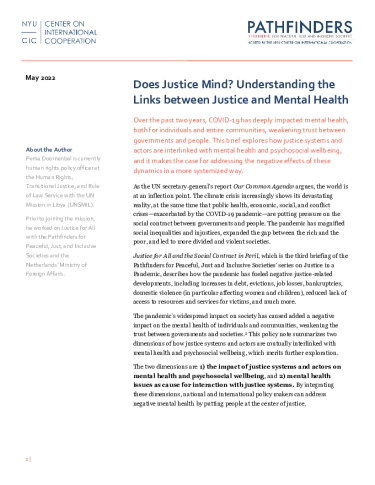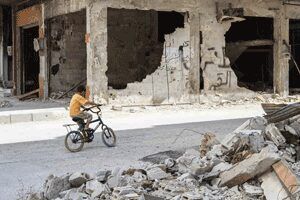After experimenting with months of lockdown and imposed social distancing measures in response to the COVID-19 pandemic, people everywhere now have a more immediate understanding of how prolonged crisis can create challenges for both individuals’ mental health as well as maintaining the social fabric of communities.

However, social fragmentation and mental distress created by adverse environments are not new, nor are they limited to COVID-19. Gross social injustices or armed conflicts have provoked wide-spread mental suffering, broken down social norms, and undermined social cohesion since time immemorial. Generations grow up in the midst of violence, normalizing it, or losing capacity to trust others or their institutions. Hence, neglecting the psychosocial impacts of social injustices and violence on the individual and society undermines other efforts to build peaceful societies. Nevertheless, the use of mental health and psychosocial support (MHPSS) approaches to build peace or prevent violent conflict remains anecdotal and ad hoc.
This paper summarizes the existing arguments for why MHPSS should be more systematically used to sustain peace, and offers four opportunities to use MHPSS approaches in sustaining peace efforts at the UN.
- Support national capacities
- Integrate MHPSS as a normal part of sustaining peace strategies
- Increase expertise on MHPSS as part of sustaining peace
- Creative partnerships to support an integrated approach
Read the full paper: Mental Health and Psychosocial Support to Sustain Peace: 4 Areas to Explore for Improving Practice



